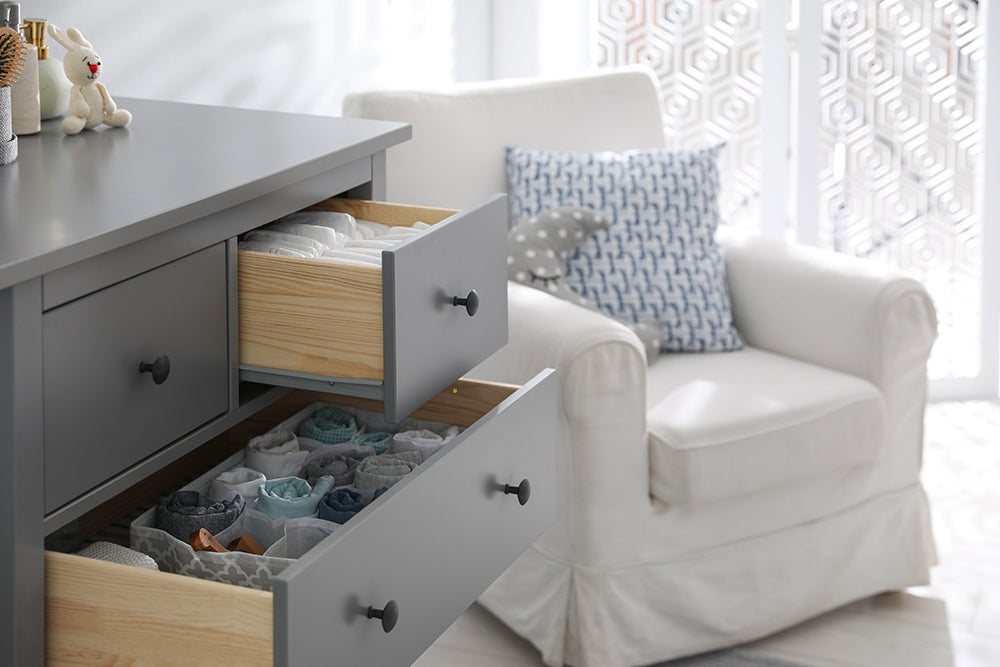The Stop Tip-overs of Unstable, Risky Dressers on Youth Act, or STURDY, was passed by Congress last week, sneaking into the $1.7 trillion fiscal 2023 spending bill and becoming law when President Joe Biden signed the package.
The new law will only apply to clothing storage furniture (leaving entertainment centers, bookshelves, china cabinets and other large items exempt) and will require the Consumer Product Safety Commission (CPSC) to adopt an updated version of an existing standard created by ASTM International (the American Society for Testing and Materials), a third-party organization that creates safety guidelines for manufacturers from a range of industries, if the CPSC decides that the standard meets the requirements outlined in the bill.
Despite gaining a new level of accountability, industry manufacturers are generally breathing a sigh of relief, as STURDY will supersede a competing rule recently adopted by CPSC, the fairness, enforceability and impact of which had been hotly debated due to its complexity.
With the passage of STURDY, clothing storage furniture sold in the U.S. will have to pass three tests in order to be deemed compliant: one with all drawers filled with 8.5 pounds per cubic foot; one simulating the impact on stability when the unit is placed on carpeting; and a third simulating the dynamic force of a toddler grabbing on to the highest drawer pull or knob. Units must remain upright during all three pass/fail tests to meet the standard and make it to the showroom floor.
STURDY was first introduced in 2021 after decades of lobbying from parent-led consumer groups, and has bounced back and forth repeatedly between the House and Senate, with modifications along the way. Changes to the bill were implemented through opposition by the American Home Furnishings Alliance (AHFA), the trade association that represents the U.S. residential furniture industry. Among the AHFA’s chief complaints was that an early version of the bill would’ve allowed the CPSC to fast-track a new mandatory standard without “stakeholder input.” That new standard would likely have relied on a series of complex new rules that the CPSC had previously announced, and which would have created a stability rating system that the AHFA heartily (and litigiously) opposed.
“There was so much variability in the prescribed test methods that, even six weeks after the rule’s publication, we know of no test lab that would agree to perform third-party verification of a manufacturer’s test results,” said Bill Perdue, AHFA’s vice president of regulatory affairs, in a statement. “There was no clear pathway for home furnishings companies to comply and, consequently, no clear pathway for regulators to actually enforce the new rule.”
ASTM now has 60 days to publish an update to their existing standard (formally known as ASTM International F2057 voluntary standard) that meets the requirements outlined in the final bill. From there, CPSC will have 90 days to review the updated voluntary standard and decide whether to adopt it in whole or in part as the new mandatory stability rule for clothing storage furniture. While it’s currently unclear whether CPSC will take up the standard or continue to push for a more complex rating system, the AHFA seems to be taking the passage of STURDY as a win for manufacturers.
“Industry, parents and consumer advocates have all agreed that the revisions result in a robust safety standard that will reduce furniture tip-overs and improve protections for small children,” said AHFA CEO Andy Counts in a statement. “All of these stakeholders look forward to CPSC’s prompt action to adopt F2057 as the federal safety rule mandated in STURDY.”
Correction: January 3, 2023
An earlier version of this story incorrectly stated that CPSC will be forced to adopt an existing ATSM standard, and that consequences for manufacturers who do not comply with new regulations are untested. Following the passage of STURDY, CPSC is now required to assess whether the standard meets the bills requirements; violations for noncompliance are also established in the Consumer Product Safety Act.
Homepage photo: ©New Africa/Adobe Stock





























